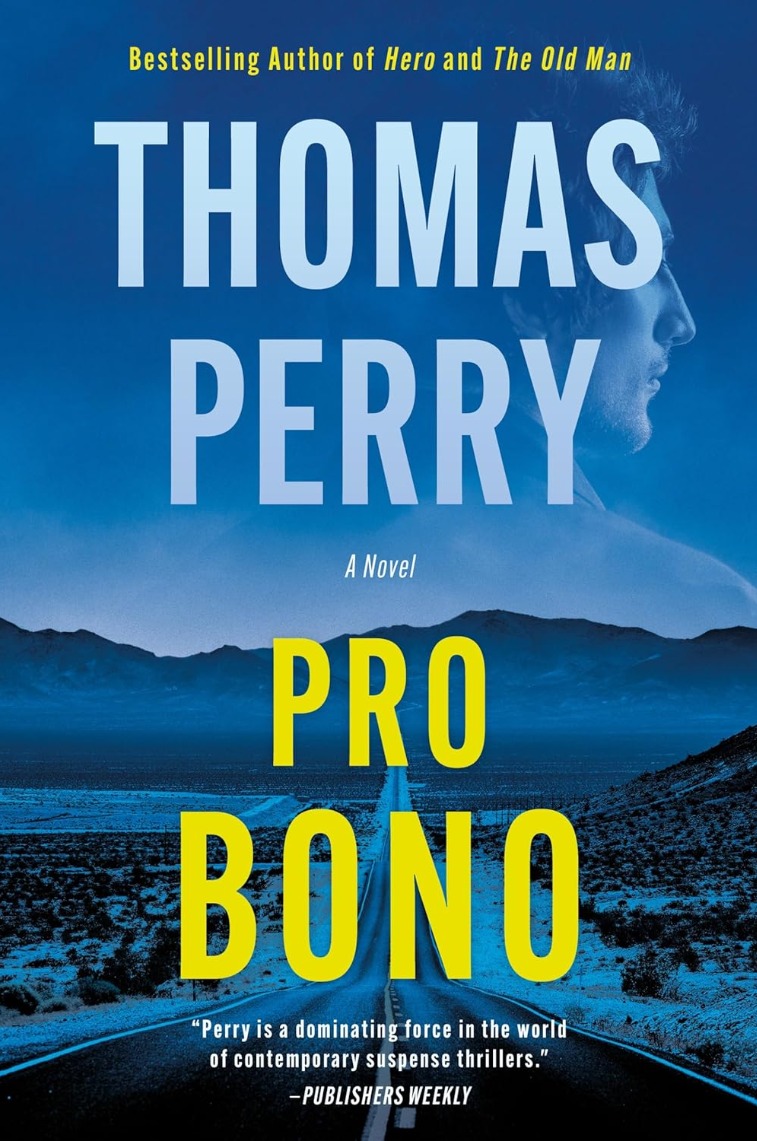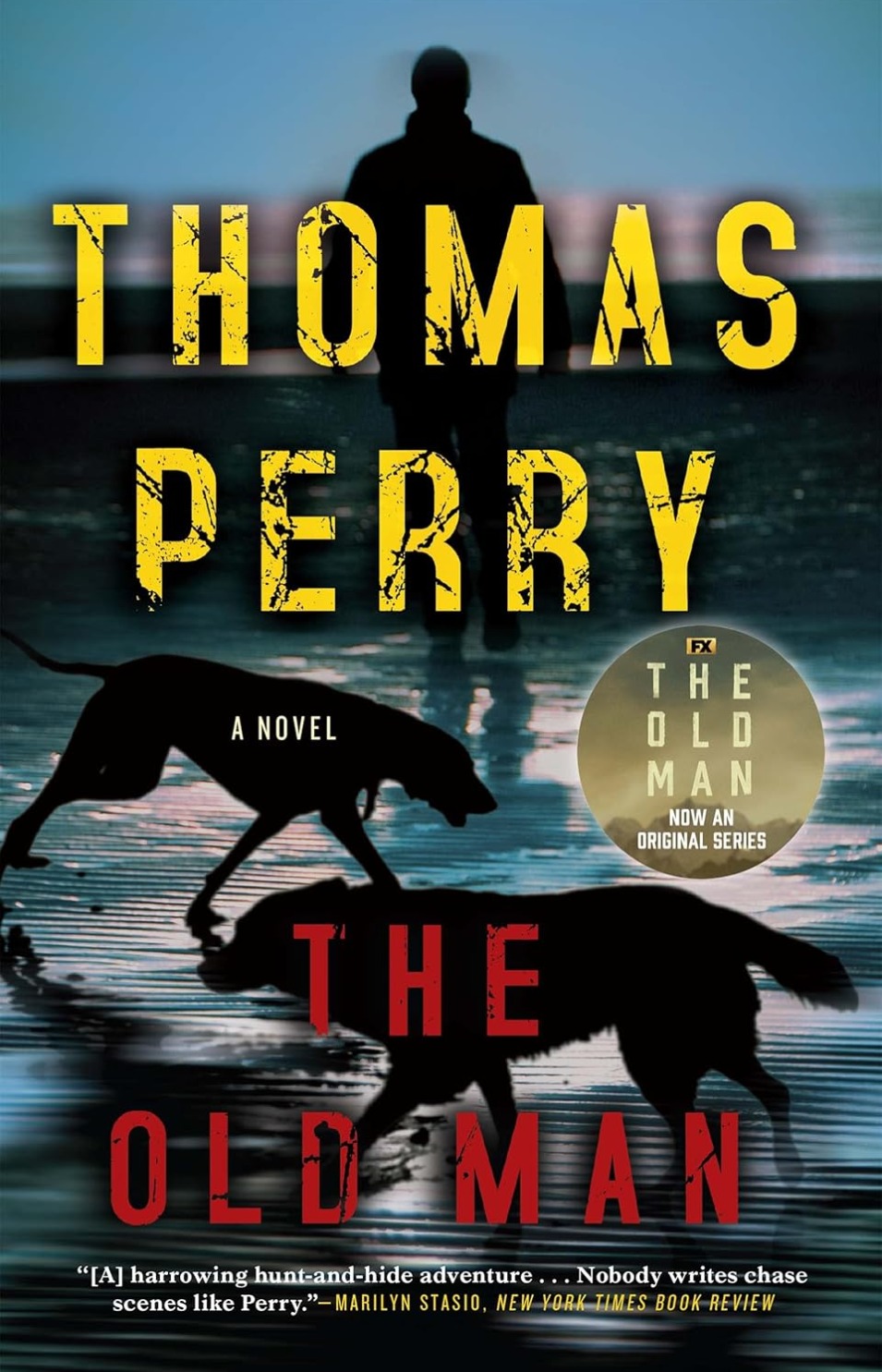Financial fraud is a grave and widespread crime. In 2023, Americans lost $10 billion to fraudsters, much of it non-recoverable. However, from a literary standpoint, it’s not the most interesting crime to portray. While many fascinating books and films have been about elaborate heists or con jobs, the more mundane siphoning of funds to fake accounts doesn’t make for interesting reading or viewing. Popular thriller writer Thomas Perry tries his luck at making financial fraud the basis for his new thriller, “Pro Bono,” but the results aren’t very thrilling.
The hero of “Pro Bono” is attorney Charles Webster. As a teenager, Webster’s stepfather got control of his mother’s considerable inheritance and stole millions. Webster put a permanent end to the stepfather’s criminal career (and life) and then dedicated his own career to helping other victims of financial fraud. He now specializes in family law and inheritance matters, and recovering missing assets is his forte. (He’s also a CPA.) Webster often ignores the law and professional ethics in his quest to make his defrauded clients whole. He burglarizes homes and offices and plants illegal trackers and wiretaps when needed to get the goods on fraudsters.
Webster’s latest client, Vesper Ellis, is an attractive young widow who entrusted the management of her late husband’s substantial estate to several investment firms. Vesper suspects money is missing from her accounts and goes to Webster for help. He determines that two of her money managers are crooks who have siphoned off Vesper’s money and those of other clients into their personal accounts. To recoup Vesper’s losses, Webster must convince the investment firms to make her whole.
I found the legal aspects of “Pro Bono” interesting. When Webster threatens a lawsuit against the investment firms, they deny everything and try to stonewall him by refusing to return messages, breaking appointments, and other annoying delay tactics. These tactics are par for the course in potential business litigation, and I enjoyed seeing Webster work his way around the red tape.
However, I doubt most of Perry’s followers read “Pro Bono” to get a primer in white-collar business litigation. So, the crooked financial advisors resort to tried-and-true strong-arm tactics by hiring a couple of goons to threaten Webster and steal his evidence. Unfortunately, they prove to be about as inept a pair of thugs as you’ll find in this type of thriller. The two crooked financial advisors are even less threatening when trying to personally stop Webster. Readers don’t want criminals to succeed in books like “Pro Bono,” but they do want to believe the protagonists are in real danger. This novel’s overall level of villainy is about what you would encounter in a typical Hardy Boys book.
The dishonest financial advisors aren’t even the most annoying characters in “Pro Bono.” That “honor” goes to a pair of ex-cons who were inmate firefighters on a prison bus 18 years earlier. They found the wreckage of Webster’s stepfather’s car and figured out the teenager ran the stepfather off the road, killing him. During their prison stay, they learn who Webster has become and think there could be a substantial payday in store for them when they eventually encounter the adult Webster. I won’t describe how the two ex-cons figure into the plot. However, they are among the least believable and most annoying characters I’ve encountered in crime thrillers. Perry could easily have turned them into a far more worthy pair of adversaries for Webster than the investment advisors or their inept goons. Unfortunately, their entire subplot is badly botched.
The discussion of the actual fraud and its detection in “Pro Bono” is brief and general. I suspect a detailed description would have been overly technical and incredibly dull. However, by keeping the discussion of the crime’s mechanics brief, the author seems to run out of material about three-quarters of the way through the book. He then inserts a brand new subplot into the story. At this point in the novel, Webster decides to recover the money his stepfather stole from his mother 18 years earlier. Again, readers will get a rather uninteresting legal education on the disposition of abandoned funds. As Webster tries to recover the money, his stepfather’s equally larcenous relatives learn there might be unknown-to-them millions lying around that they might get their hands on. This subplot seems to have so little to do with the book’s main storyline that it might have originated as an unpublished shorter work that the author rolled into the body of the novel.
I’ve read several of Thomas Perry’s earlier books, but “Pro Bono” is the first I can’t recommend. The sections that work are interesting, such as Webster’s efforts to get through the legal red tape thrown at him by the investment firms. Unfortunately, the action scenes, usually Perry’s strength, are too short and entirely lacking in suspense. The book’s villains aren’t likable people, but they are petty and inept. The crooked advisors and their goons never really present the sort of menace that makes for a great thriller. Further, the last few chapters seem to belong in a different book. Even the book’s title has little to do with anything in the novel. “Pro Bono” has too few pros and too many cons to recommend.
NOTE: The publisher graciously provided me with a copy of this book through NetGalley. However, the decision to review the book and the contents of this review are entirely my own.
In this clip, author Thomas Perry discusses Pro Bono and his writing career on the Nick Standlea show:
Read other reviews of Pro Bono:
Thomas Perry is the author of 32 novels including the Jane Whitefield series (Vanishing Act, Dance for the Dead, Shadow Woman, The Face Changers, Blood Money, Runner, Poison Flower, and A String of Beads), Death Benefits, and Pursuit, the first recipient of the Gumshoe Award for best novel. He won the Edgar for The Butcher's Boy, and Metzger's Dog was a New York Times Notable Book. The Independent Mystery Bookseller's Association included Vanishing Act in its "100 Favorite Mysteries of the 20th Century," and Nightlife was a New York Times bestseller. Metzger's Dog was voted one of NPR's 100 Killer Thrillers--Best Thrillers Ever.
Perry’s book, The Old Man, inspired the television series starring Jeff Bridges, John Lithgow, and Amy Brenneman. Strip was chosen as a New York Times Notable Crime Book for 2010. The Informant was a New York Times Notable Crime Book for 2011 and won the Barry Award in 2012. Poison Flower was chosen among Booklist’s Best Crime Novels of 2013. The Informant and Eddie's Boy are Barry Award winners.
Header Photo: "Riot Radio" by Arielle Calderon / Flickr / CC By / Cropped
Silver Screen Video Banner Photos: pedrojperez / Morguefile; wintersixfour / Morguefile
Join Button: "Film Element" by Stockphotosforfree
Twitter Icon: "Twitter Icon" by Freepik
Facebook Icon: "Facebook Icon" by Freepik
LinkedIn Icon: "LinkedIn Icon" by Fathema Khanom / Freepik
Goodreads Icon: "Letter G Icon" by arnikahossain / Freepik
Certain images on this site appear courtesy of Amazon.com and other sponsors of Silver Screen Videos for the purpose of advertising products on those sites. Silver Screen Videos earns commissions from purchases on those sites.
© 2025 Steven R. Silver. All rights reserved.







